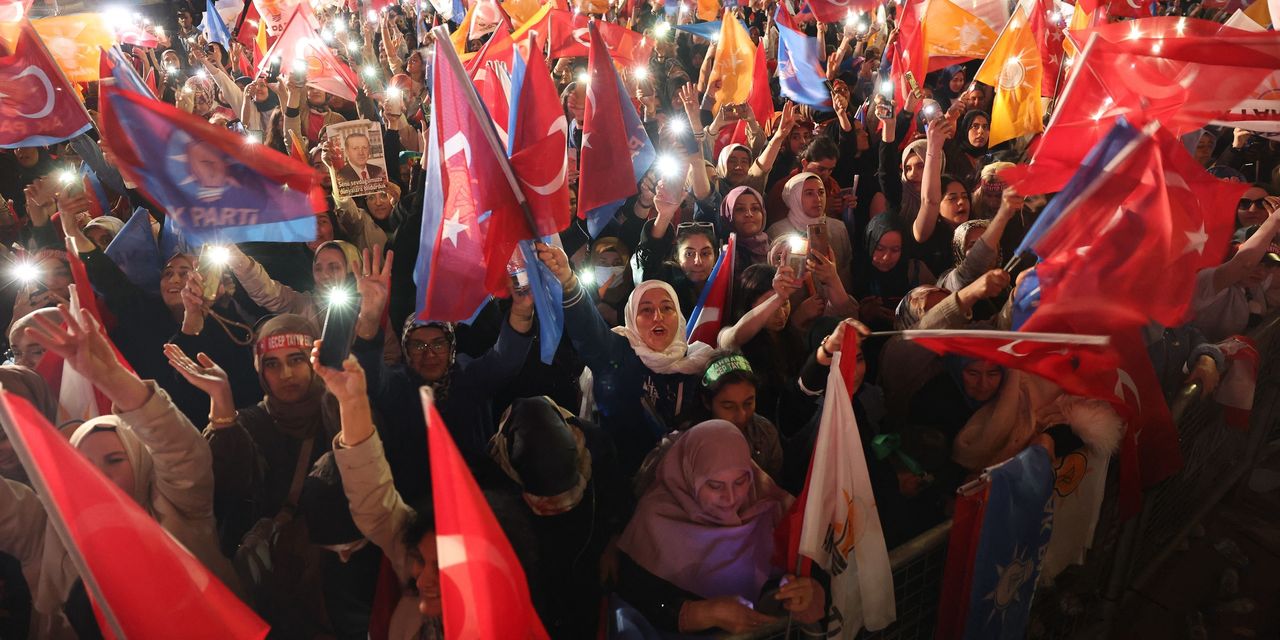Turkey’s stock market fell more than 6% Monday and the lira also came under pressure after presidential elections in the NATO member looked like delivering no clear outcome.
With 98% of votes counted as financial market trading got underway, neither President Recep Tayyip Erdoğan, who has held power for about 20 years, and who had just over 49% of the votes, nor his main challenger Kemal Kılıçdaroğlu, on 45%, had secured more than the 50% threshold to claim victory.
This left open the prospect for a run-off poll towards the end of the month.
“Political uncertainty is never good for investor sentiment and the next two weeks will be marked by uncertainty, low predictability and high volatility in Turkish assets,” said Ipek Ozkardeskaya, senior analyst at Swissquote Bank.
The BIST index
XU100,
fell 6.4% before being halted for volatility. The benchmark is up 88% in domestic currency terms over the past 12 months as local investors have looked to the stock market to generate returns as high inflation — which rose above 80% in October last year — created a severe cost of living crisis.
The iShares MSCI Turkey ETF
TUR,
listed in New York fell 3% on Friday.
However, the economic problems faced by Turkey — particularly the very high inflation attributed to Erdoğan’s determination to reduce interest rates despite price pressures — are mainly expressed in the country’s currency.
The dollar
USDTRY,
rose to 19.6582 lira, a fresh record high, having gained 26% in just the last year. This came despite state lenders supporting the Turish currency late on Sunday, according to Bloomberg.
“The scattergun of political uncertainty is keeping the Turkish lira on a volatile path, as the country heads for a runoff in the presidential race. Erdoğan has led highly controversial monetary policies aimed at increasing exports, rather than tackling painful inflation, and the prospect of Turkey’s ‘strongman’ winning another term has weakened the currency further,” said Susannah Streeter, head of money and markets at Hargreaves Lansdown.
“There are expectations of a rollercoaster ride in the days ahead, as sentiment waxes and wanes about the prospects for the opposition coalition, which has pledged to pull more conventional levers to restore financial stability,” Streeter added.
Read the full article here




